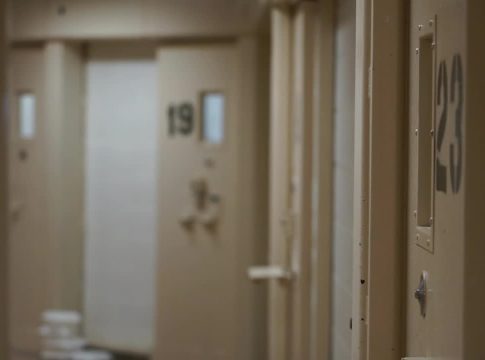Challenges in Oklahoma’s Mental Health Systems for Incarcerated Individuals
Overview of the Situation
Recent findings have highlighted significant concerns regarding the Oklahoma Department of Mental Health and Substance Abuse Services (ODMHSAS) and its compliance with a court-settlement agreement aimed at improving the treatment of inmates declared incompetent to stand trial. This report sheds light on potential failures within the system that could impact the mental health and wellbeing of these individuals, many of whom are experiencing critical delays in necessary treatment.
Key Findings of the Report
The report indicates that ODMHSAS has not met several important deadlines and has struggled to gather essential data needed for effective implementation of the reforms. Specifically, the department has:
- Failed to initiate an in-jail treatment program at the Tulsa County Jail, which is crucial for addressing the needs of individuals in the system.
- Lacked clear oversight and leadership in making necessary changes, leading to a perception of inaction amidst pressing needs.
- Ignored the growing number of inmates awaiting transfer for mental health evaluations, with estimates indicating that around 40-45 individuals are currently in such limbo.
Voices of Concern
Tulsa County District Attorney Steve Kunzweiler described the department’s performance as disappointing, emphasizing the responsibilities they willingly undertook. The suggestion that systemic issues exist within the department raises vital questions about the care and treatment of vulnerable populations in the justice system. Sheriff Vic Regalado has expressed a willingness to collaborate to establish a competency restoration program, signaling the need for a practical approach to these complex challenges.
The Path Forward
Amidst these challenges, Interim Commissioner Gregory Slavonic has taken office with a renewed focus on aligning ODMHSAS operations with the court’s mandate. His priorities include:
- Strengthening Oversight: Creating a dedicated point person within the department to manage compliance with the consent decree, ensuring accountability.
- Engaging Collaborations: Fostering partnerships with local law enforcement and mental health professionals to develop effective treatment plans within correctional facilities.
The Importance of Addressing Mental Health in Incarceration
Addressing mental health needs within correctional systems is not just about compliance with legal mandates; it is a matter of compassion and human dignity. It is about understanding that individuals experiencing mental health crises require care, support, and rehabilitation rather than punishment alone.
Moving Forward with Awareness
As the situation unfolds, a detailed follow-up report is expected next month, which could further outline the necessary steps for accountability and improvement. There is a five-year timeline in which to meet the court’s requirements; failing to do so may result in financial penalties.
Conclusion
For those invested in mental health advocacy, the ongoing developments in Oklahoma’s mental health treatment for incarcerated individuals offer both a challenge and an opportunity. By working collaboratively and focusing on effective implementation, significant progress can be made to ensure that mental health care is treated as a priority within the justice system.
The path to improvement requires dedication, transparency, and a compassionate approach to those who are most vulnerable—qualities that can foster a healthier community for everyone involved.

Covers wellness, nutrition, mental health, and daily life tips.
Bio: Talia brings a background in health journalism and holistic living to help readers live better, one tip at a time.

